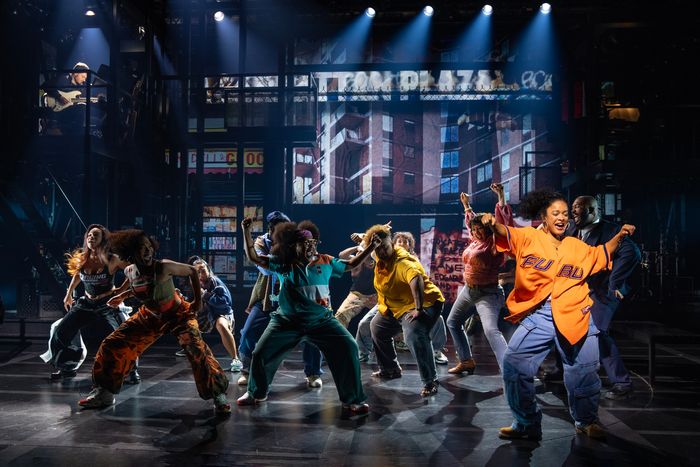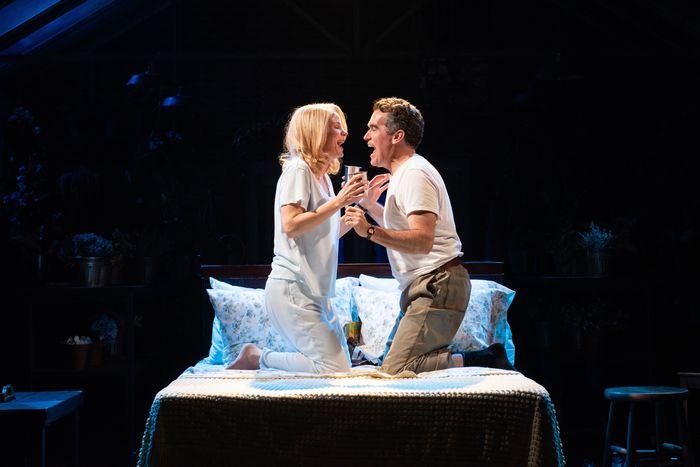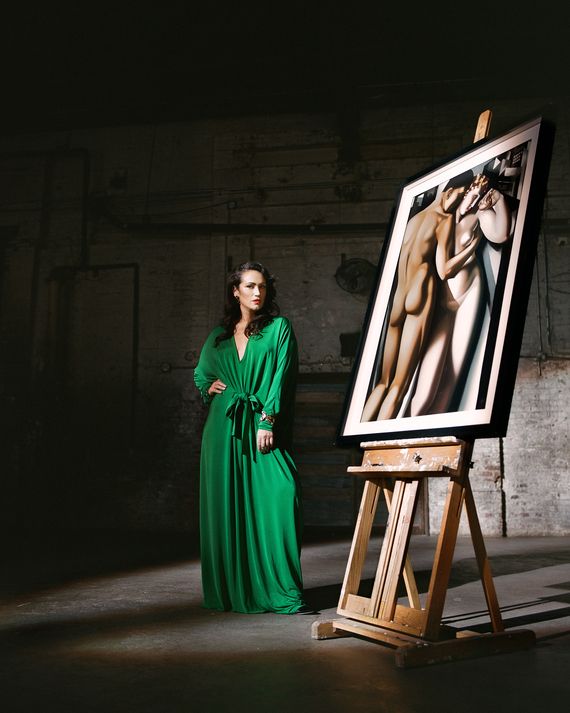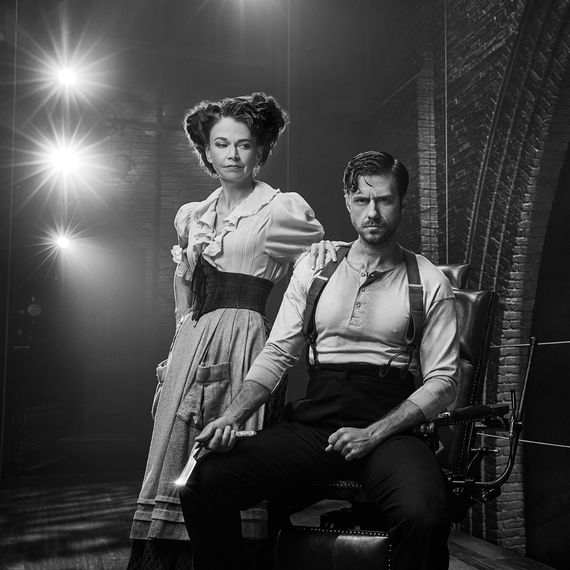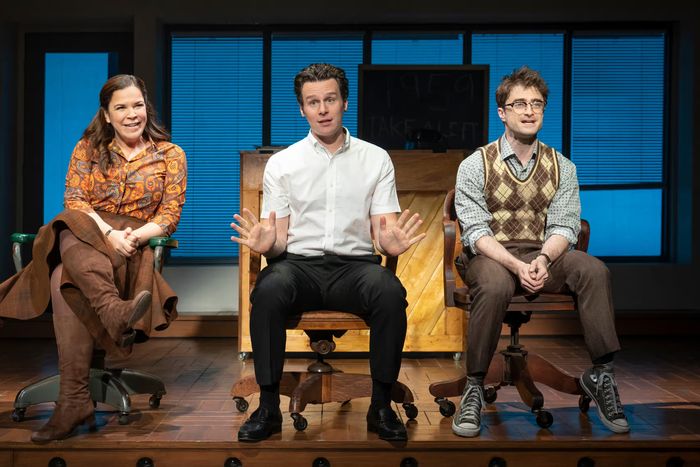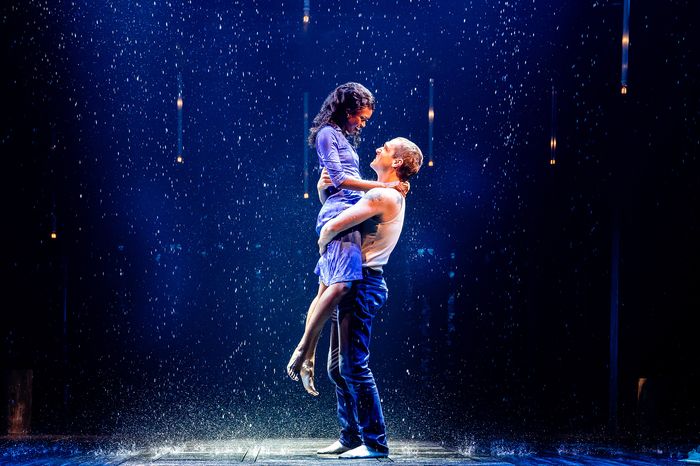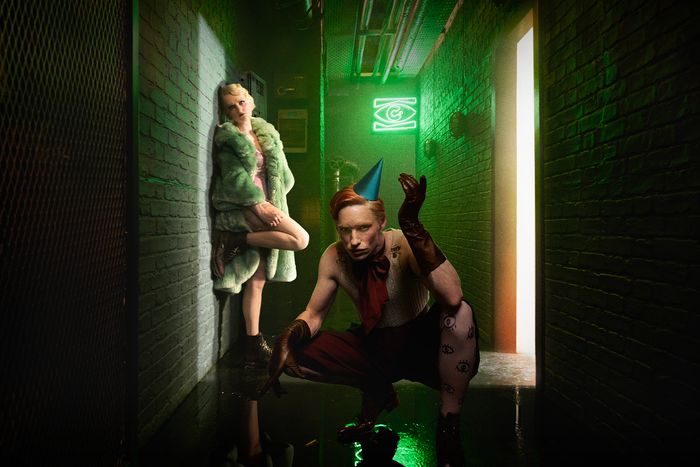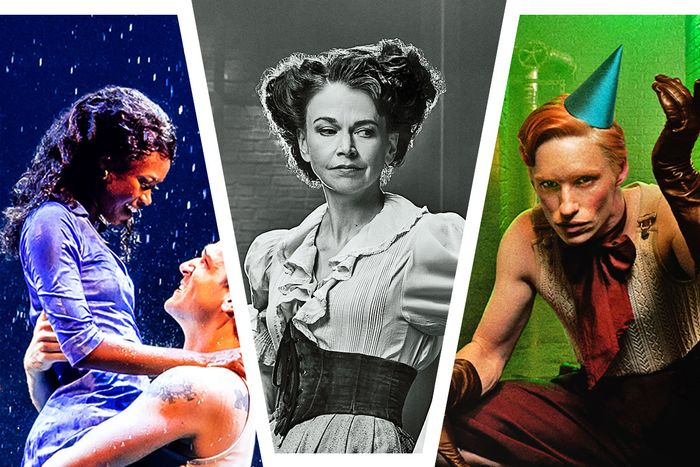
At some point since 1970, Broadway lost its voice, literally. Era-defining actors with unmistakable voices, often ones riddled with imperfections, like Elaine Stritch, Ethel Merman, and Kelly Bishop, were once Tony winners who performed alongside the soaring sopranos, and their originality was treated not as a liability but as a vehicle for storytelling. These days, it seems like everyone is a belter with a healthy mix à la Casey Likes or Taylor Louderman — talented, of course, but lacking personality — thanks to an increase in movie-based musicals, jukebox musicals, extended runs that require replacement actors to seamlessly slot in, and pop-influenced songwriting. Now, casts can happily consist of highly trained musical-theater robots designed to view Broadway as a place for technical ability without vocal storytelling, and audiences who seek technical virtuosity rather than individualized star-power are all the happier for it.
Yet there is reason for hope. Just look at the voices of the all-star cast of Stephen Sondheim’s Here We Are, which premiered at the Shed earlier this season and had room for the gravely specificity of Amber Gray. While your standard musical epics (Back to the Future, the upcoming Great Gatsby adaptation with Jeremy Jordan and Eva Noblezada) remain interested in a style of singing that is rote to the point of tedium, there are currently more types of voices on display than we’ve heard in a long time — here are some of the standouts.
1.
The Pop Star
Maleah Joi Moon in Hell’s Kitchen
The Alicia Keys jukebox musical isn’t innovating so much as combining a slew of musical-theater references that have come before it (ask AI to blend Jagged Little Pill and In the Heights and you’d end up with Hell’s Kitchen). But the show’s chief revelation is newcomer Maleah Joi Moon in the lead role — her earthy tone is more common in pop and R&B than on Broadway, as it never comes off as mechanical or predetermined. She didn’t graduate from a university MT program that trained for maximum marketability, and that’s likely what sets her apart.
See it if: You got sad when Alicia Keys missed the opening note of “My Boo” during the Super Bowl
2.
The New Classic
Kelli O’Hara in Days of Wine and Roses
Kelli O’Hara is a soaring soprano in the lineage of Mary Martin and Barbara Cook. Singing Adam Guettel’s Days of Wine and Roses score, which eschews easy melodies in favor of jazz-infused dissonance, she is at full operating capacity. She sells strange musical-theater arias in abundance, swerving across vocal lines that depict her character’s descent into alcoholism. The most engaging part of Days of Wine and Roses is that tension — between O’Hara’s classic Broadway voice and a score that never puts the audience at ease.
See it if: You cry rewatching Barbara Cook sing “Losing My Mind” from Follies.
3.
The Control Freak
Eden Espinosa in Lempicka
Eden Espinosa is best known to gay men across the country as one of the best Elphabas of all time. This season, she leads Lempicka as the titular Cubist painter. Her raspy vocal pyrotechnics have always been something to behold, but the bag of tricks she displays in Lempicka feels fresh — instead of just focusing on her belt, listen to the way she flicks up her voice at the end of some lines or the way she can pack vibrato into the tiniest word in the show’s signature song, “Woman Is.” For non-musical-theater fans, imagine if Melissa Etheridge did the Disney College Program.
See it if: You want to see an Elphaba perform in a show with a second act that doesn’t fall apart.
4.
The Complete 180
Sutton Foster in Sweeney Todd
Sutton Foster’s ebullient performances in Thoroughly Modern Millie and The Drowsy Chaperone led a generation of showgirls to emulate her in high-school productions across America. Now, Foster is taking on roles nobody would associate her with, from Marian the Librarian in The Music Man to Mrs. Lovett. Early buzz ranged from dismissive to cruel — Foster’s upper register wasn’t working in a viral bootleg of “The Worst Pies in London” from the first show, and her work sounded more like a trying-on of the character than a fully embodied performance. Still, Lovett is a pusher, and Foster’s full-throated commitment to any role asked of her fits the character.
See it if: You’re curious and have a few hundred bucks to spare.
5.
The Actor First
Daniel Radcliffe in Merrily We Roll Along
Daniel Radcliffe has been a theater boy for a long time but has never scored a Tony nomination, even for his well-reviewed 2014 run in The Cripple of Inishmaan. That seems likely to change. Radcliffe still has the voice of an actor first — he largely speak-sings and occasionally strains for the higher notes — but his vocal imperfections fit perfectly into his character Charley’s neuroticism.
See it if: You want to see a performance that made Mandy Patinkin give a standing ovation mid-show.
6.
The Emoter
Joy Woods in The Notebook
Joy Woods had a beloved run as Audrey in the current Off Broadway revival of Little Shop of Horrors. When she’s performing, she has the ability to bloodlet through song with emotions gushing out of her and the audience becoming unwitting voyeurs of immense pain. Now, she’s bringing that vocal bareness to the Nicholas Sparks romantic tragedy as “Middle Allie.”
See it if: You’re not scared to cry in public.
7.
The Muppet
Eddie Redmayne in Cabaret
Eddie Redmayne is reprising his role as the Emcee following an Olivier-winning performance in the role on London’s West End. After years of Alan Cumming and Joel Grey sharing dual custody of the Emcee, Redmayne became the first new blood to take on the role on Broadway since 1998. If you saw the Les Misérables film, then you know what Redmayne brings vocally to the role — a certain Kermit-like quality. Even as he competently sings the heartbreaking “I Don’t Care Much,” it’s hard to shake the feeling that you’re listening to the Muppet version of Cabaret.
See it if: You still miss Jim Henson.
More From This Theater Season
- Made for Jessica Lange
- How to Write a Fake Rock Song
- Amy Herzog and Sam Gold Are Just a Couple of Ibsen Lovers



